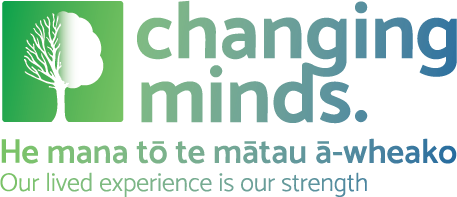Have your say on the role and function of District Inspectors.
How can I be involved?
Tāngata Mātau ā-wheako people with Lived Experience of mental distress, addiction or substance use are invited to share our thoughts with Manatū Hauora (The Ministry of Health).
Two virtual hui for people with Lived Experience are being held on Wednesday 21 February (10am - 12pm) and Thursday 22 February 2024 (9:30am - 11:30am).
The virtual hui will step through the changes and consultation in more detail.
To join one of these hui please email mentalhealthadmin@health.govt.nz for the registration details.
If you want to share your thoughts in writing you can email these to the Ministry by Friday 8 March 2023.
Who are District Inspectors?
District Inspectors are lawyers.
They are independent of the Ministry of Health and health and disability services.
Their purpose is to protect the rights of people who are placed under the:
Mental Health Act 1992,
Substance Addiction Act 2017, or
Intellectual Disability Act 2003.
They have three main roles:
To make sure the legal requirements (you might see this called “statutory requirements”) are followed when a person is placed under a compulsory order of an Act.
To monitor the quality and safety of mental health and disability services.
To investigate complaints.
What do the Guidelines do?
The guidelines are being updated because the current version (which was published in 2012) is no longer fit for purpose. There have been lots of changes to laws and policies since then.
District Inspectors must follow the guidelines.
The guidelines provide extra information, guidance and expectations for the District Inspectors work that might not be included in the Acts (laws).
The guidelines are also a tool for people, whānau and services to understand the District Inspectors role better.
What are the changes?
There are many changes being made. Some of the important differences between the old version and the draft guidelines are:
Adding specific guidance for District Inspectors appointed under the Substance Addiction Act and the Intellectual Disability Act.
Including a people-centred recovery approach and a greater focus on equity of care and ‘least restrictive practices.’
Emphasising Te Tiriti and international human rights requirements.
More information:
Changing Minds has asked whether putea aroha or compensation is available for the Lived Experience community on this feedback process and our understanding is that this is not available. However we know many in our community wish to use our Lived Experience expertise do drive social movement and change and we are grateful to everyone who choses to share your time and energy to this mahi.
A full copy of the invite to participate, including questions to help inform your feedback can be found here.

